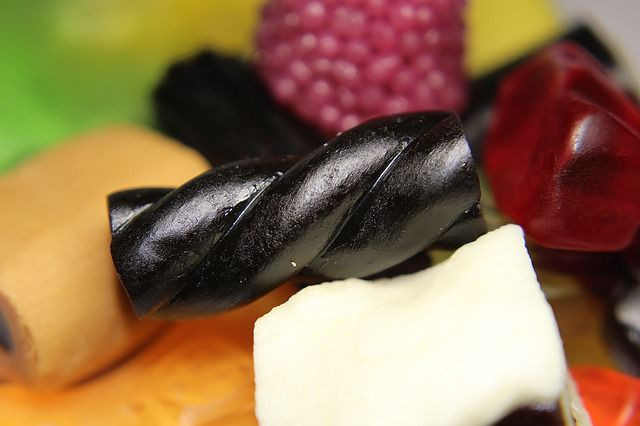Eating Licorice Candy During Pregnancy May Lead To ADHD Symptoms, Early Puberty In Kids: Foods To Avoid While Pregnant

Some women during pregnancy develop a strong craving to eat one specific food in copious amounts. We don't know exactly what causes these cravings, but certain foods could be too much of a good thing, especially for pregnant moms. A recent study in the American Journal of Epidemiology found eating large amounts of licorice during pregnancy could lead to a lower IQ, ADHD-like behavior, and early puberty in kids.
Eating too much licorice is potentially harmful even for those not pregnant. In particular, black licorice contains glycyrrhizin, a sweetening compound taken from licorice root. The compound can cause potassium levels in the body to fall, which can lead to abnormal heart rhythms, high blood pressure, oedema (swelling), lethargy, and heart failure, according to the Cleveland Clinic.
Read More: How A Woman's Body Changes During 9 Months Of Pregnancy
During pregnancy, glycyrrhizin is believed to impair the placenta by allowing stress hormones to cross from the mother to the baby. High levels of hormones like glucocorticoids are thought to affect fetal brain development, and are linked to behavioral disorders in children.
In a 2013 study, Professor Jonathan Seckl, an endocrinologist at the Queen’s Medical Research Institute at the University of Edinburgh, and study author, explained to The Telegraph: “If you inhibit this barrier then you start to get children being born with low birth weight and who have altered stress responses and depression. This may be what underpins the variation you get from one individual to another.”
Researchers at the University of Helsinki, the National Institute for Health and Welfare, and the Helsinki and Uusimaa hospital districts, sought to observe the long-lasting effects of licorice on the fetus, specifically post-pregnancy. The brain health of a total of 378 youths, with an average age of 13, were monitored. These were children whose mothers consumed "large amounts" or "little/no" licorice during pregnancy. In this study, a large amount was defined as over 500 milligrams (mg) (250 grams of licorice) and little/no as less than 249 mg glycyrrhizin per week.
Those exposed to licorice in the womb performed worse than others in cognitive reasoning tests; the difference was about seven IQ points. They also performed poorly in memory capacity compared to their non-exposed licorice counterparts. Licorice-eating parents estimated their children had more ADHD-like problems than others; girls started puberty earlier, and advanced further.
Researchers emphasize these food cravings should be kept in proportion. Glycyrrhizin is one of the many factors that influence fetal development, although it's impossible to say whether it expressly affected the development of a certain individual. In Finland, where a large number of Finns have been exposed to glycyrrhizin in the womb, the National Institute for Health and Welfare published food recommendations for families and children in January 2016. Licorice was placed under the "not recommended" category for women, but occasional consumption of small amounts, like a portion of licorice ice cream, or a few licorice sweets is deemed safe.
There are several foods that are deemed unsafe during pregnancy, if consumed in large quantities.
For example, pregnant women are advised to avoid fish high in mercury, such as Shark and Tuna, marlin and other predatory fish, either fresh or frozen. Excessive mercury in the blood during pregnancy has been linked with both pregnancy complications and developmental problems in infants, particularly in brain development. There appears to be a correlation between mercury levels and low IQ in children.
Read More: Pregnant Women Advised To Avoid All Tuna
In terms of drinks, indulging in alcohol and large amounts of caffeine can disrupt fetal development. Babies of mothers who drink during pregnancy suffer from developmental delays and behavioral changes. In other words, no alcohol, and caffeine intake should be limited to less than 200 milligrams a day.
Eating for two can be stressful; adequate nutrition education can help ensure a safe, and healthy baby.
Source: Räikkönen J et al. Maternal licorice consumption during pregnancy and pubertal, cognitive and psychiatric outcomes in children. American Journal of Epidemiology. 2017.
See Also:



























